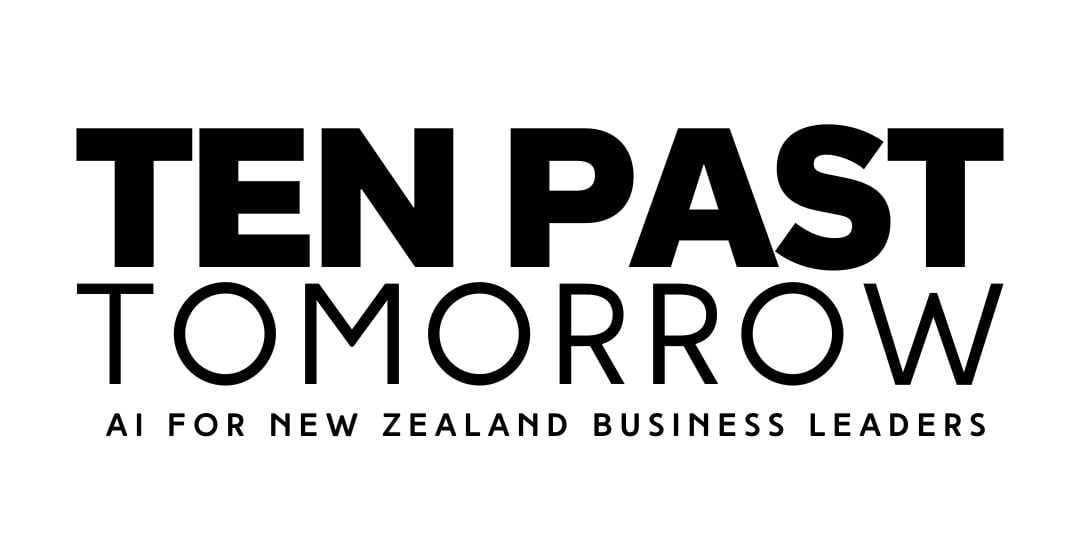Understand and analyze accounting data intuitively with AI
The time is ten past tomorrow; time to have a close look at a tool that can help you leverage your data like never before. It’s called Crystal, and it’s like GPT for numbers.
But before I tell you more about Crystal, let me confess something about myself. I’m a words guy. I love writing, reading, speaking, and listening. I’m good at expressing myself and communicating with others. I’m not so good at numbers. I don’t like maths, statistics, or accounting. I find them boring, confusing, and intimidating.
That’s why I tend to neglect the data analysis side of my businesses. I know it’s important, but I don’t enjoy it. Never have. I don’t naturally have the skills or the tools to do it well. I don’t have the time or the money to hire someone else to do it for me. And I don’t have innate curiosity about data and numbers to learn how to do it better.
But that’s a big mistake. Data is the lifeblood of any business, including mine.
Data can help us understand our customers, our competitors, our market, and our performance. Data can help us optimize products, services, marketing, and sales, operations, in fact any and all departments of our businesses.
That’s why I was very happy when I discovered Crystal this week. Crystal is a natural language interface for data analysis. It’s a tool that lets you ask questions and get answers from your data using natural language. You don’t need to know any coding, formulas, or charts. You just type or speak what you want to know, and Crystal will give you the answer.
Before I continue, I don’t have any connections, financial or otherwise to Crystal or iGenius, the company who developed Crystal.
But I am impressed by iGenius. They have been working on Crystal for over four years, and to my eyes it looks like one of the most advanced and user-friendly tools in the market.
So sit back, grab a cuppa, and let me show you some examples of what Crystal can do….
Goodbye to heavy lifting
Let’s say you have a spreadsheet with your sales data for the last quarter. You want to know how much revenue you made, which products sold the most, which regions performed the best, and how you can improve your sales strategy for the next quarter.
You could spend hours or days trying to figure out these things using traditional tools like Excel or Google Sheets. You could create formulas, filters, pivot tables, charts, and graphs. You could hire a data analyst or a consultant to help you out.
With Crystal, all you have to do is ask questions like:
-
How much revenue did I make in Q3?
-
What were the top 10 products by sales volume?
-
Which region had the highest growth rate?
-
What are some recommendations to increase sales in Q4?
And Crystal will give you the answers in seconds. Not only that, but it will also give you explanations, narratives, and visuals to help you understand your data better. It will also give you personalized suggestions based on your goals and preferences.
For example, if you ask for recommendations to increase sales in Q4, Crystal might say something like:
-
You should focus on product X, as it has the highest profit margin and customer satisfaction.
-
You should invest more in region Y, as it has the highest potential and demand.
-
You should launch a promotion campaign in November, as it is the best month for sales according to historical data.
And so on.
Crystal can help you get insights and recommendations from your data in minutes instead of hours or days. It can help you save time and money on data analysis. It can help you make better decisions and grow your business.
Crystal and your accounting software
Crystal can be used to plug into accounting software (e.g. Xero) and augment business decisions for businesses.
By connecting to your data sources, Crystal can access and analyze your financial information in real time. You can ask Crystal any data-related question in natural language, either by voice or text, and get instant answers in text or graphs.
For example, you can ask Crystal questions like:
-
How much revenue did I make last quarter?
-
What are my top expenses this month?
-
Which product category has the highest profit margin?
-
How many new customers did I acquire this year?
-
What is my average invoice value and payment time?
-
How does my performance compare to my competitors?
You can also drill down to specific details, get suggestions for follow-up questions, and receive alerts for important changes in your data.
Crystal can help you monitor your cash flow, track your expenses, optimize your pricing, identify your best customers, and more.
New school vs Old school
At this point it’s probably a good idea to pause, and point out that Crystal (or tools like it) don’t have a monopoly on data analysis.
We’ve been analyzing data since day dot. We’ve been using spreadsheets, BI platforms, and more recently, chatbots to run the rule over our data and use it to inform our business decisions.
So what exactly makes ‘new school’ tools like Crystal better than ‘how we’ve always done it around here’?
Here’s a few things that stand out to me…
-
Crystal is simpler than spreadsheets: You don’t need to know any formulas or functions to use Crystal. You just need to know how to ask questions in natural language.
-
Crystal is fast: The process to upload your data into Crystal is very quick.
-
Crystal is smarter than chatbots: You don’t need to worry about Crystal misunderstanding your questions or giving you wrong answers. Crystal can handle complex queries, generate narratives, and learn from feedback.
To me, it seems that Crystal combines the ease of use of chatbots with the power of BI platforms.
The limitations
But Crystal is not perfect. It has some challenges and limitations that you need to be aware of. Some of them are:
-
Data quality: Crystal can only work with the data that you give it. If your data is incomplete, inaccurate, or outdated, Crystal will not be able to give you reliable answers. You need to make sure that your data is clean, consistent, and up to date before using Crystal.
-
Privacy: Crystal can access and analyze your data using cloud computing and AI. This means that your data may be stored and processed by third parties that you don’t know or trust. You need to make sure that your data is secure, encrypted, and compliant with the relevant laws and regulations before using Crystal.
-
Bias: Crystal can learn from your data and your feedback. This means that Crystal may reflect or reinforce the biases that exist in your data or your behavior. You need to make sure that your data is diverse, representative, and fair before using Crystal.
These are some of the challenges and limitations of Crystal and natural language interfaces in general. They are not insurmountable, but they require some attention and care. You need to use Crystal responsibly and ethically.
How can you do that? Here are some possible solutions or best practices to overcome these challenges and ensure responsible use of Crystal:
-
Data quality: You can use tools like Data Studio or Data Quality Monitor to check and improve the quality of your data before using Crystal. You can also use Crystal’s feedback feature to report any errors or issues that you find in its answers.
-
Privacy: You can use tools like Privacy Shield or GDPR Compliance Checker to check and improve the privacy of your data before using Crystal. You can also use Crystal’s settings feature to control who can access and use your data.
-
Bias: You can use tools like Fairness Indicators or Bias Detector to check and reduce the bias of your data before using Crystal. You can also use Crystal’s diversity feature to get different perspectives and opinions from your data.
-
Trust: You can use tools like Explainable AI or Trust Score to understand how Crystal works and how it gives you answers before using Crystal. You can also use Crystal’s transparency feature to see the sources and methods behind its answers.
Moving forward
At the beginning of this article I told you I’m a words guy? Well, thanks to Crystal, I can see a future where I’m a numbers guy too.
I plan to use Crystal in my own business, integrating it with my Hubspot CRM and CMS, my Xero accounting software, Google analytics, and my Linkedin page data.
I’m eager to experience how it will help me with my data analysis. I predict it’s going to supercharge my knowledge of my business, my customers, my market, and my financial performance.
We don’t need to be data scientists to use Crystal (or analytics tools like it). We just need to be curious and willing to learn, to ask questions and get answers from our data using natural, everyday language.
Data interpreting, conversational platforms like Crystal are revolutionary for New Zealand business leaders like us.
They’re simple, fast, and smart. They’re not perfect, but they’re improving every day. And they’re available right now to help us evolve our businesses.






